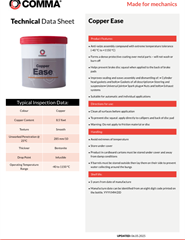Good evening and thanks for looking.
I've had a look at a brand new piece of equipment that needs to be maintained in the coming months. The threads on Exd glands into threaded housings in zone 2 IIC have been coated with copper ease, I understand a non conductive lubricant can be used on threads but I would expect the copper ease to be conductive. Am I right to be concerned. Thanks



